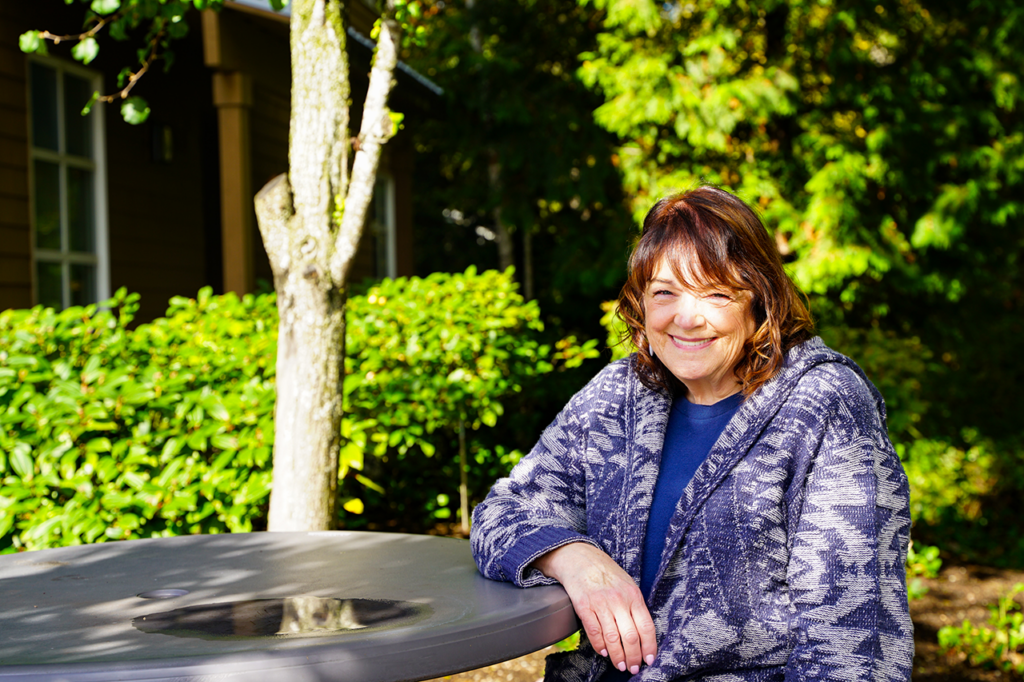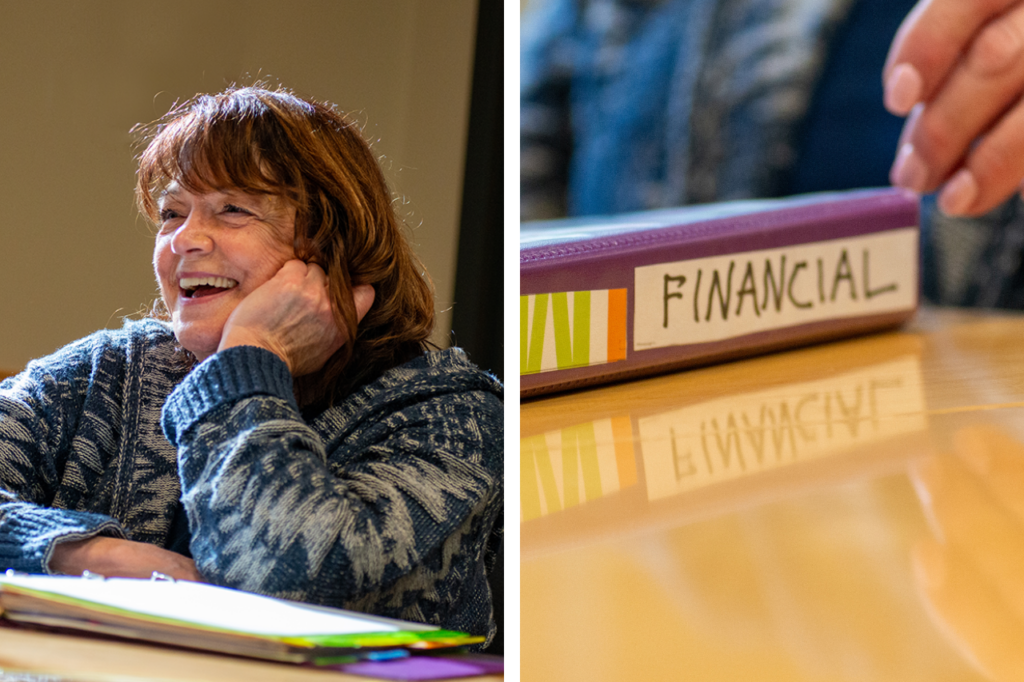How Cindy sees things differently with financial empowerment
In 2003, Cindy decided to make the trek from Florida to the Seattle area to be closer to family after her divorce. Once she settled into her new home in east King County, Cindy began experiencing challenges in supporting herself and her two young children on a single income.
This led to the tough decision of sending her kids to temporarily live with their father, while Cindy fortified a foundation for their new life in Washington. First, she began using credit cards to help make ends meet, and quickly discovered that this was a temporary fix. The wrestle of trying to make ends meet began taking its toll.
“It’s amazing how easy it was to get a credit card. But as I got further and further into debt, I began falling deeper into depression. I developed lots of anxiety over it,” she said. “Growing up I was never taught anything about financial wellness. As kids, we never received an allowance and then when I got older, I married, and my husband did it all, so I was never really taught anything about money or managing finances.”
Cindy was experiencing something that many of us have experienced around our own financial wellness. According to the American Psychological Association, seven in 10 people in America are struggling with some or all aspects of their financial wellbeing. Money management continues to be one of the leading causes of stress for Americans with research showing that financial hardship is associated with mental health challenges, such as heightened symptoms of anxiety and depression.
To help with her increased stress, Cindy sought mental health treatment, and her provider referred her to Hopelink. She first connected with the Food Assistance program, stocking her kitchen with fresh, free groceries from Hopelink Food Markets, and then used Non-Emergency Medical Transportation (NEMT) services to get to doctors’ appointments. Nearly 13 years went by with Cindy working hard to balance her budget when during one food market visit, a Hopelink employee told her about the Financial Capabilities program.

While Cindy first partnered with Hopelink after moving to the Eastside in 2003, it wasn’t until 2016 when she heard about and enrolled in the Financial Capabilities program. Photo by Mel Martin, Hopelink.
Not knowing what to expect from working with a financial coach, Cindy was nervous to talk about her finances with a stranger – something most of us don’t often do.
“I thought it was going to be a banker telling me what to do but my coach was warm, compassionate, and a good listener. It was very easy to share, and I felt totally comfortable talking with her,” Cindy shared. “We always finished our lessons with me having a better understanding of who I was and my financial tools to deal with money in ways that were important to me. I was looking forward to coming in every time.”
However, the most impactful development for her was unlearning the stigmas she’d unintentionally subscribed to as she managed her money without previously having had the opportunity to explore financial behaviors.
“My biggest takeaway was learning I wasn’t a bad person for having gotten into a hard place with my finances and I didn’t need to feel guilty about it,” she said. “I finally felt hopeful about starting to move forward with learning how to handle getting out of debt and be in control of my finances.
Hopelink’s Financial Coach Donna O’ Connor says many of the clients she works with share the same experience with the stigmas Cindy described.
“I can’t tell you how many clients have said to me they feel a lot better after sharing their financial struggles,” Donna shared. “All of us have a money story, but many of us don’t feel comfortable talking about it. We grow up either being told directly or indirectly that talking about money is not polite and considered rude.”
Donna continued, “the most damaging stigma is the pervasive narrative in society that tells us we should all be able to manage on our own without support. This prevents or delays people from reaching out and asking for help, leaving many people to struggle in silence, and carry that stress and shame alone.”
Demystifying the nuances of money management through community education and dismantling stigmas through one-on-one coaching is a key component of the Financial Capabilities program. In every coaching session, program staff take time to learn about the client’s values before delving into their finances, Donna explained.
“Our goal is to get people to really understand their personal relationships with money, the decision making around finances, and having the confidence in themselves to make those decisions moving forward,” Donna said. “In Cindy’s case, she really put in the work to understand her own intentions and discover what her financial goals were.”
After graduating from the program, Cindy’s financial situation unexpectedly changed. Her income increased slightly, but she still had debt and felt uneasy about upcoming financial decisions. So, she returned to brush up on what she learned the first time around, meeting with Donna routinely to break-down her short and long-term goals. Through this second partnership, Cindy says she learned way more than just money management.
“It wasn’t just my financial coach telling me how to create a budget and that’s it,” she shared. “Donna really wanted to get to know me and help me figure out what does the life I want look like and what would I want to change to get that life?”
Intention. “That’s the big word that I learned with my coach” she said. “It’s amazing how intentional I have to be with it all. Intentional spending, intentional budgeting, just intention. Recently I was walking into a store and saw a shirt I wanted. I had to stop and ask myself, what is my intention here?”

Long after completing financial coaching with Hopelink, Cindy still uses her binder from the Financial Capabilities program to plan her budget. Photo by Mel Martin, Hopelink
With her new skillset in money management, Cindy began seeing her life in a new light, developing trust in her ability to make cogent financial decisions.
“I have a very intentional fun list,” she explained. “One of my favorite things to do is travel. I like traveling around Seattle by ferry, so I make sure to budget for that. I am also saving for an inflatable kayak and I’m really having fun researching them! I also make sure to set aside for my art classes because I like acrylic painting and it really helps support my mental health. However, my big goal this year is to save up to visit my family in Indiana.”
Hopelink’s Financial Capabilities program partners with individuals as they learn to confidently and confidentially manage their money and achieve greater financial wellbeing. The program leads one-on-one coaching sessions with individuals, offers virtual financial advice sessions every Tuesday, and also leads community workshops across the region.
If you or someone you know is experiencing mental health challenges, call or text 988 to connect with the 988 Suicide & Crisis Lifeline. The Lifeline provides 24-hour, confidential support to anyone experiencing an emotional or mental health challenge.
